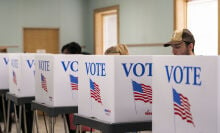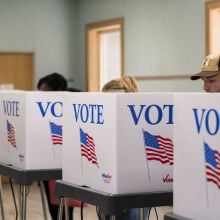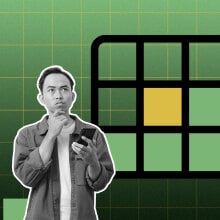As an Indian immigrant living in the UK, I have oscillated between being hesitant and terrified to leave my house in south London since July 30. In late July and early August, most of England and parts of Northern Ireland have witnessed widespread racist violence following the murder of three little girls — Bebe King, six, Elsie Dot Stancombe, seven, and Alice Dasilva Aguiar, nine – in Southport on July 29. Following the attack, misinformation largely spread through social media falsely stated that the perpetrator was Muslim or an undocumented immigrant, stirring up a simmering wave of Islamophobia, xenophobia, and racism across the nation.
On July 30, over 200 rioters hijacked a vigil in memory of the victims in Southport. Soon after, far-right groups such as the English Defence League and the Patriotic Alternative mobilised troops from Belfast to Birmingham, cultivating a state of reactive hatred against people of colour, especially Muslims. The mobs have looted and destroyed brown-run businesses, laid siege to mosques, and set fire to accommodation housing asylum seekers. Countless people who practise Islam and/or are brown have been verbally and physically assaulted on the streets and on social media.


In the midst of this, I have been inundated with panicked calls and messages from my family instructing me to stay home and, at all costs, avoid wearing any recognisable South Asian elements like jhumkas (bell-shaped earrings) or embroidered kurtas (a traditional tunic). While I shakily tried to reassure my parents that things weren't as bad as they seemed (they definitely were), I felt deeply betrayed by the city that I call home as an adult. I was frantically second guessing every gaze that landed on me on the bus and walking a little faster from the train station; turning down the volume on my earphones to hear every movement behind me, in preparation for the worst.
So imagine my absolute horror when I went on TikTok seeking some escapist doom scrolling only to discover the tone deaf "Jai Ho" summer trend. At a time when brown people feel threatened in the UK, several caucasian creators have brought back the 2009 Pussycat Dolls version of the Hindi song "Jai Ho", recorded for the controversial Danny Boyle film Slumdog Millionaire. The once popular track is not back in the limelight in support of people of colour but instead, as a party anthem. Turns out, at the time of its release, the song whose title translates to "may victory prevail" manifested as a popular drinking game in the UK. Now, a decade later, the bop has returned on social media as creators post videos getting dressed and chugging beers to the sound.
This movement was led by British YouTuber and TikTokker Flossi Clegg who had posted six (now-deleted) videos to the controversial sound while on vacation in Greece. The posts had garnered over 3 million views and were littered with comments from brown TikTok users calling Clegg out for her insensitivity or making her aware of the riots sweeping the UK. In its wake, many people of colour also posted videos to the sound, mocking the trend and urging white people with racial privilege to acknowledge the dire reality of the country. However, a week later, new videos of young creators pregaming to "Jai Ho" continue to be uploaded online on the daily.
Although upsetting, this reaction is not shocking for many brown people. "What’s happening right now isn’t new, there is always an appropriation of marginalised cultures whether that’s with our clothes and jewellery or slang and music," Vandita Morarka, founder and CEO of social justice non-profit One Future Collective, tells Mashable. "People want this culture because it makes them seem interesting or exotic but they don’t want the community that created it, in fact they want to invisibilise those creators until the culture is forgotten and accepted as their own."
Think of the recent Scandinavian scarf debacle that took over TikTok. In a now-deleted post from late May, an employee from Bipty Fashion Rental shared screenshots of white women wearing long, flowy dresses with sheer scarves or dupattas draped across their shoulders and over their chest. A quick glance at the block print on the dresses as well as the style of the shawl immediately reveals that the outfits in question were in fact South Asian. However things got complicated when the creator ignorantly stripped the dupatta of its cultural significance by exclaiming, "What is this aesthetic called? It’s not Scandinavian summer wedding guest, but it’s very European, very classy, effortlessly chic."
In a similar fashion, the "Jai Ho" summer trend conveniently separates the song from its Indian origin or the ongoing socio-cultural context, positing it as a frivolous dance track on social media and nothing more. Several users have criticised brown people for overreacting or dramatising a "fun trend" into a political statement. Comments like "You're so bitter, you need to touch grass" and "Brown people cry about how they never get representation…but when someone does it, yall start losing it" are increasingly common on videos. But this tendency to silence cries against racism and instead label them as overly sensitive is rooted in British history. On one hand, the internet insists we're deeping it by not seeing a mindless trend for what it is. On the other, fascist attacks on people of colour are being labelled as "protests" to protect what apparently belongs to white Britons.
Since time immemorial, the UK has gaslit us by reframing racism as minor disagreements. As Dazed news editor Serena Smith writes, “Britain is often described as a country where racism is subtle: We don’t have KKK rallies and lynch mobs; we have microaggressions wrapped in polite debate." In reality, the UK's undeniable colonial history remains entrenched in our present. To this day, as journalist Michaela Makusha writes for Teen Vogue, British culture has a habit of denying racism and relabelling it as "small groups of bigoted individuals".
Despite Britain's insistence that the racism is isolated and not representative of a larger national sentiment, for years the UK has allowed political leaders and media to normalise Islamophobia and single out people of colour. "The riots are a culmination of anti-immigration rhetoric fed to us by the government and media. It’s no surprise that people are filled with the narrative that immigrants = bad. This is the information they’ve been told," explains Sharan Dhaliwal, founder and CEO of South Asian magazine Burnt Roti, adding that the violence has left her terrified to leave her home in Hounslow, London. For others in the brown community, the ongoing racial attacks are a painful reminder of the past. Back in 1976, Southall witnessed racist and murderous riots while in 1981, several South Asian homes in Walthamstow were set on fire.
"The 'Jai Ho' summer is extremely perplexing; there's nothing 'Jai Ho' about the lives we’re living."
British Pakistani cultural commentator Mehek Bukhari was raised on stories of P-word bashing. She recalls her grandfather barricading their postbox from fear of people throwing fireworks in them. "In this context, the 'Jai Ho' summer is extremely perplexing; there's nothing 'Jai Ho' about the lives we’re living," she says. "As upsetting as it is, I’m not shocked as there’s a pattern of people in privilege absorbing other cultures in a way that suits their aesthetic and humour, but refusing to say anything when it comes to material reality."
To make matters worse, the original "Jai Ho" song appeared on the soundtrack of the 2008 Oscar-winning film Slumdog Millionaire, which was also steeped in controversy. Directed by British filmmaker Danny Boyle and starring actors Dev Patel and Freida Pinto, the movie follows a teenager from Dharavi, India's biggest slum situated in Mumbai, as he journeys on a quest to fame. While the movie was widely celebrated in the West, winning eight Academy Awards, several Golden Globes and BAFTAs, back home in South Asia it was criticised for pandering to the Western gaze as navel-gazing poverty porn.
In a 2009 interview with the LA Times, Shyamal Sengupta, then film professor at Whistling Woods institute in Mumbai had said, "[Slumdog Millionaire] is a white man’s imagined India. It’s not quite snake charmers, but it’s close. It’s a poverty tour.” It's deeply ironic then that years later, the song has returned to the mainstream and is still being celebrated by white people while communities of colour continue to battle racist tropes on-screen, and while off-screen we're made to feel unsafe in our homes, communities, and businesses. It highlights a privileged white urge to only accept parts of brown culture that they deem desirable and appropriate, without much thought or care to the community that the art centres.
Just imagine the shock that ignorant bystanders will feel when they finally realise that the very song they are branding on TikTok as a summer anthem is not only brown but is in fact written by A. R. Rahman, a Muslim man from the same community whom they refuse to stand up for. As Bukhari rightly says, "Seeing trends like the 'Jai Ho 'summer feels like a slap in the face; I’m tired of carrying the onus to consistently educate people. It’s time that they take responsibility for their actions, we need to move away from people of colour having to spoon-feed people with privilege."
Topics TikTok Racial Justice Immigration











